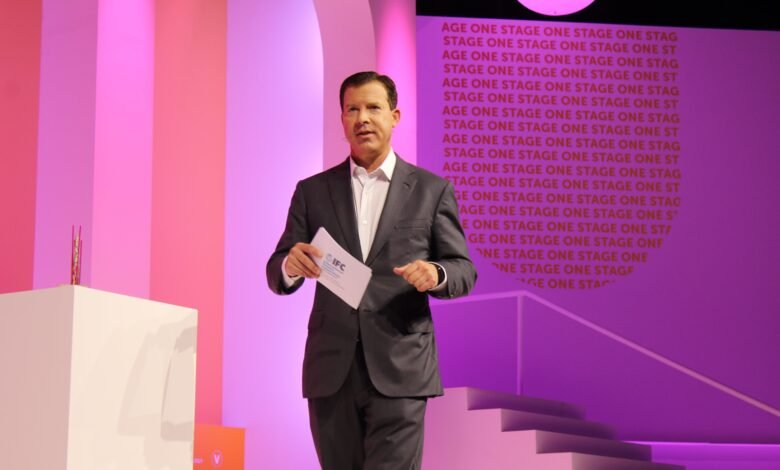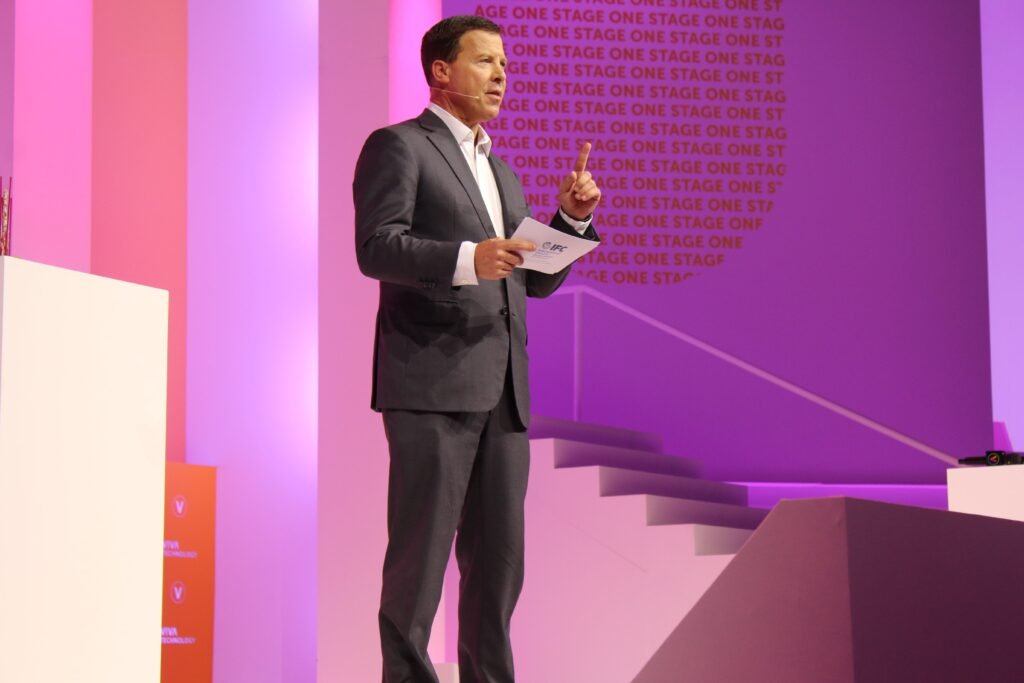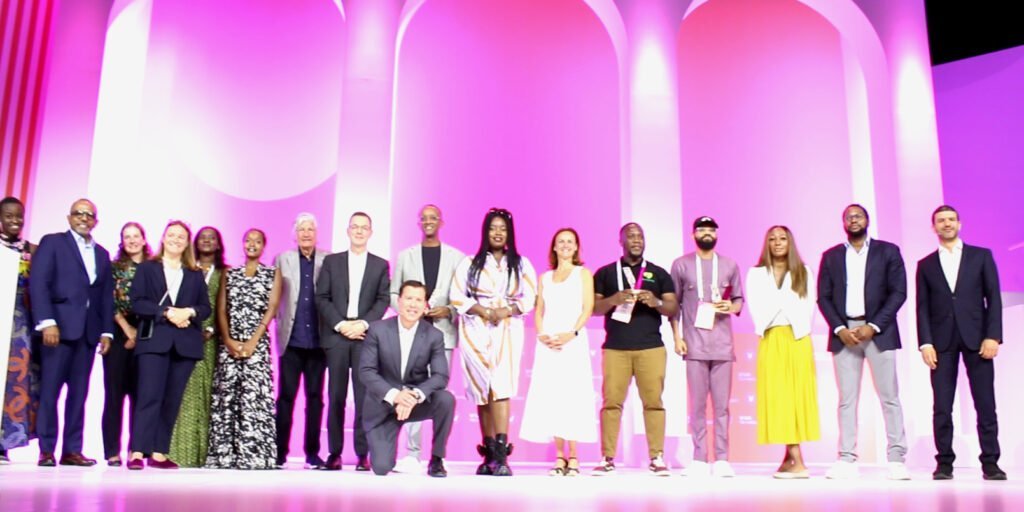Interview William Sonneborn : “Over next five to ten years, Africa will become exporter not only of minerals and oil but also of ideas and technology”
The International Finance Corporation (IFC), a member of the World Bank Group, is the leading private sector development institution in emerging markets. An "investor first" institution, it operates in more than one hundred countries, including Africa. Its roadmap includes the technology sector and its players. William Sonneborn, the Global Director of Disruptive Technology and Creative Industries and Funds, talks about its challenges and goals.

Interview by Dounia Ben Mohamed
The African tech ecosystem is evolving fast, revealing its impact on African economies and societies. What are its strengths and weaknesses?
When I think about the Africa tech entrepreneurship economy, it’s dynamic, as you mentioned. It’s very fast growing, but it’s been historically concentrated in four key markets: South Africa, Kenya, Nigeria, and Egypt. So, it’s unbalanced. And even within those four markets, it’s been concentrated in fintech. About 40 % of the activity in funding and success stories coming in fintech. So, our job is to even out those success stories into other parts of the continent, which is how we build ecosystems. We did it originally by working in Kenya, South Africa, and Egypt. Now we’re doing it in places like Tunisia, Ethiopia, Morocco and Ghana, really to try to create this entrepreneurship opportunity for jobs. Really, it’s about jobs given the youth who are so numerous in Africa. And with jobs you get in hopes.
How is IFC supporting the players in this ecosystem in terms of financing, skills development and so on?
We have basically three pillars of focus on the startup ecosystem in Africa. One is building the basic layer for nascent markets. A great example is we did some work with a consultant on Ethiopia. This is about a year and a half ago. Country the size of Ethiopia, with a population of more than 120 million, do you know how many startups were in Ethiopia? Total? 7. We realized that that was a problem. So, we partnered with a firm. We decided we were going to put 350 women between the age of 18 and 22 through full stack coding school with mentorship in Ethiopia. Of the assisted 350 women, 90% per cent of them are going to go work for a state-owned entity, Ethiopia Airlines, Ethiopian Telecom or work in technology. I think 90 % of those women at the end of the program said, I want to be an entrepreneur.
Now, we realize the reason there’s seven isn’t because of lack of interest or capability. It’s lack of funding. It’s government policy and regulation that takes over a year to set up a startup in Ethiopia. So, we’re working with our colleagues at the World Bank to embed a startup act in Ethiopia to do ease of doing business with tech startups.
We’re working on building the first incubator in the country to provide free seed capital for startups with a gender balance between men and women, which is also important for us.
What we are going to have to do over time is come in as a direct investor, which we do in series A and series B, the growth stages to ramp up these success stories. We’ve done that in South Africa. We’ve done that in Kenya, Nigeria and Egypt. We’ve done that in Senegal with Wave, the first ‘unicorn’ in Senegal and more widely in francophone Africa. That’s part of our job. We are first an investor. To return to this example, Wave offers a mobile money wallet that allows its customers to pay for goods and services electronically, transfer money, buy airtime or pay their bills – all instantly, directly from their smartphone and at a fraction of the cost and hassle. Not surprisingly, since its launch (2017), Wave has already reached over 11 million customers per month.
The third pillar we have developed is investment. We’ve invested about three and a half billion dollars in the tech ecosystem in Africa over the last eight years, and that’s accelerating. So, the next eight years, we could invest much more.
Because when you think about Africa on a per capita basis, it’s one 50th of the penetration of venture capital where we are here today in France at VivaTech. We need to level off the playing field. And the way to do that is for IFC to invest and crowd in private sector participants to invest alongside us to scale these businesses. That is a big part of it. It’s regulatory policy, it’s building the ecosystem, doing it with the gender focus in terms of balance, and providing capital advisory support and guidance to our global network to give these companies a better chance to succeed.
Once again this year, you will be present at VivaTech, notably through the African Tech Awards. What is the purpose of this initiative?
The idea of mobilizing other commercial investors to be excited about investing in African tech companies was the idea for last year, which is our premiere edition. In that edition we decided to launch, in partnership with VivaTech, the Africa Tech Awards, focused on three categories fintech, climate tech, and healthtech.
VivaTech was shown to hundreds of thousands of people through streaming over the last three days. The idea is to showcase really good African startups to the world in a room where it’s filled with investors, venture capital investors from around the world looking for innovative ideas and startups. We use the publicity around the awards to elevate the winners on a global stage. And we continue to grow and it is our second year now, which we grew. We grew the nominations for the awards by 30 % from first edition to second edition.
And What’s amazing is the quality of entrance is extraordinary. We have nine finalists we brought here from Africa to Paris. Three of them were chosen on June 15 as the winners of the 2023 Africa Tech Awards, one startup per category. But for three days, the nine finalists were able to meet with investors at VivaTech.
We have a team including Deloitte as independent, one internal judge and several independent judges that come from venture capital firms that serve as the judges of the awards. It was very well done to make sure it’s unbiased and independent.
What really counts in the selection of these startups, is really how disruptive the idea is and the business model that promise it has both in terms of financial returns as an investor looking for and development impact. That’s one of the reasons we focus on fintech, climate tech and health tech. Fintech because it is really focused on financial inclusion. Health tech is that since we are not going to have as many doctors with the population in Africa doubling over the next 20 years. There’s no way to get as many doctors as we need in the continent. We need to use technology to improve the efficiency of the health care system in Africa. Climate tech because Africa is in the bull’s eye with the challenges of climate change. So, it needs to adapt to new ways for agriculture, develop circular economy and think about new ways of energy production.
Because we have to build a bunch of infrastructures in Africa. Let’s build a really innovative infrastructure, close to most of what Europe and the US., Australia and Japan did, let’s come up with the next layer, which makes Africa the model of the most friendly, climate efficient, productive, innovative economies in the world.

How can these Africa-Made innovations inspire the world in the current context of energy, resources and climate change?
Africa is already inspiring… What’s great about these digitally connected youth is they quickly grasp ideas that aren’t just innovative in the context of their country or their region or their content. But they’re coming up with ideas that can actually provide services to the world.
I’ll give you one example. Google Maps, as you know, it’s used by everyone. Unfortunately, Google Maps did not work in Africa, and no one in Silicon Valley could figure out why. Google opened an AI center in Accra. The head of that center figured out why it didn’t work in Africa. And then it started working in Africa. Then Google Silicon Valley realized that what he came up with actually improved Google Maps in the United States, in France, in Spain, in China, in Singapore, in Australia. The innovation to make Google Maps better came from there.
Another example is InstaDeep out of Tunisia. When people understand the InstaDeep story to the COVID vaccine. That’s inspirational. AI machine learning scientists built using a bunch of algorithms, ways to analyze data to improve decision making. Pfizer and BioNTech were rushing to come up with the COVID vaccine, and they weren’t able to solve it. They turned to a Tunisian tech startup that is a specialist in AI machine learning to help solve the answer. Now, BioNTech then acquired InstaDeep about a year ago for a very large amount of money. But it just shows that tech on the continent is now becoming of a global public service, not just a local public service.
When people look at how fast Africa innovated and mobile money and fintech solutions relative any other part of the world, that is amazing. The interesting thing is if you come up with an interesting innovation in Africa, given the structural challenges that innovation is exceptional and it can easily be rolled out in the world
So, what I’m really excited about over the next 5 to 10 years is not only coming up with innovation for Africa, but Africa coming up for innovation for the world and becoming an exporter not just of precious minerals and metals and oil. But an exporter of ideas and technology.
*William Sonnerborn is the Global Director of Disruptive Technology and Creative Industries and Funds at IFC. He joined IFC a little over three years ago, after spending 30 years in the private sector, including time on the management committee of the global alternative investment firm KKR.
To help build the digital economy in Africa, the Middle East, Central Asia and Pakistan, IFC launched a new $225 million platform in November 2022 to strengthen venture capital ecosystems and invest in early-stage companies that address development challenges through technological innovation in climate, health, education, agriculture, e-commerce and other sectors.
IFC has a long-standing commitment to startups, including the launch of Startup Catalyst in 2026, which will invest in incubators, accelerators, and seed funds that support innovative early-stage startups in emerging markets through mentorship, networking, and financing. To date, Startup Catalyst has supported 19 accelerators and seed funds that have invested in more than 1,180 startups in 24 emerging markets. IFC recently doubled the program with a new pool of $60 million.

AfricaTech Awards 2023 : Bringing African start-ups and investors together
For the second year, IFC has teamed up with VivaTech to host the AfricaTech Awards. This initiative aims to recognize and support innovative Africa-focused companies with disruptive solutions. Winners will gain access to leaders and top executives in the tech industry and increased visibility among global investors, including IFC, one of the largest venture capital investors in emerging markets. The inaugural edition of the Awards, which launched last year, attracted more than 300 applicants.
Like last year, the awards focused on startups offering high-impact solutions in climate technology, health, and finance – three sectors that play a key role in driving sustainable and inclusive growth across the continent. The competition received more than 380 entries, a 30% increase on the number of entrepreneurs who applied in 2022.
The 2023 winners were unveiled on 15 June at a ceremony held in conjunction with VivaTech.
- Winner in the « Climate Tech » category: Kubik a Kenyan startup that transforms hard-to-recycle plastic waste into low-cost, sustainable building materials.
- Winner in the « Health Tech » category: Waspito based in Douala, Cameroon, which offers instant video consultations with doctors, mobile laboratories and pharmacy services, all linked by a social health network.
- Winner in the « FinTech » category: Curacel a Nigerian insurance technology company that provides easy-to-use technology solutions to help insurers distribute their products, automate claims, processes and drive insurance inclusion across Africa. Its aim is to build the foundations that will make insurance more affordable and available to the next billion people in emerging markets.
Last year, the three winning startups were able to leverage the award to grow their business and multiply their impact:
- Electronic waste recycling company WEEE Centre signed new business agreements and expanded its operations to 15 African countries;
- Cairo-based pharmaceutical delivery platform Chefaa has expanded into Egypt and launched in Saudi Arabia;
- South African insurance startup Click2Sure has grown by more than 40% since winning the award last year.






